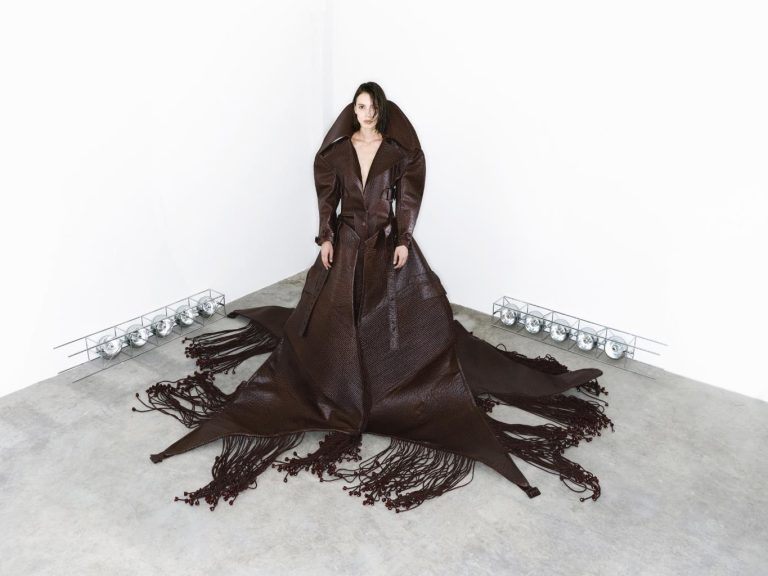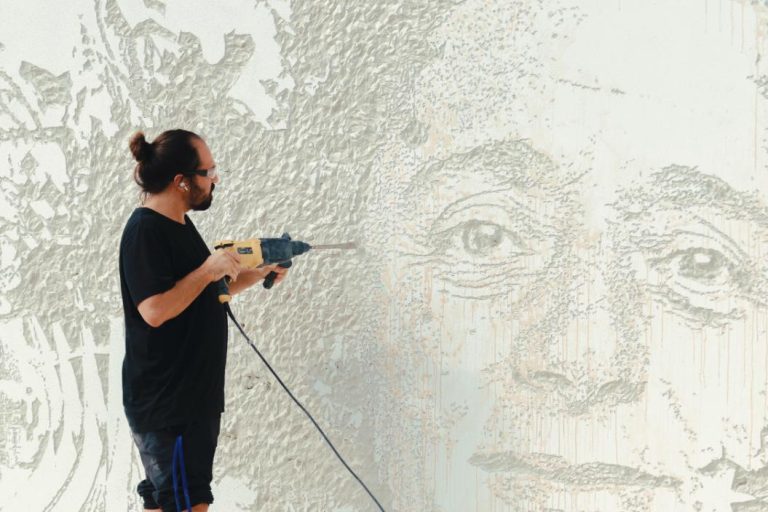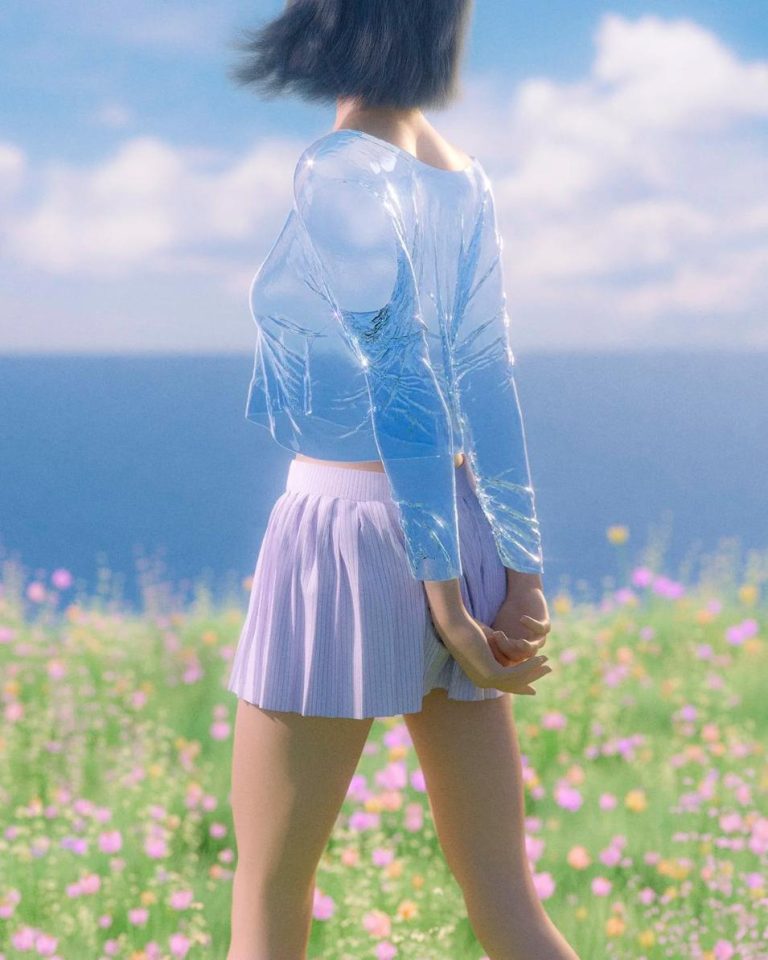Hello Alex Jenkins, thank you for taking a moment to discuss with us the wonder that is your work. Illustrators draw from many sources, and satire and the darker sides of Western experience seem an unending source for material prompts. But you seem to particularly also invoke art historical references. What is your relationship like with high art?

Hello Alex Jenkins, thank you for taking a moment to discuss with us the wonder that is your work. Illustrators draw from many sources, and satire and the darker sides of Western experience seem an unending source for material prompts. But you seem to particularly also invoke art historical references. What is your relationship like with high art?
My relationship with high art is probably pretty uninformed but I do try. I think a lot of the references I put in my Illustrations are early inspirations that have stuck with me down the line and the use of including them as almost an Easter egg is my way of showing appreciation and admiration. But I’m sure like most artists its really important to keep sources of influence as broad as possible, and the low brow and mundane information is just as important as the high art influences.
Your characters are specific, representing the DNA of your aesthetic. What is it about your unique-looking beings that have so attracted you to them? Did you happen to stumble upon this representation of the human form, or did you choose it purposely? If purposely, why?
I feel my style has changed and developed over time and this too my subject, themes, and character. When beginning as an illustrator, I had an approach that more is better and I’d attempt to cram in as much detail as possible. But moving on I realized that communicating the illustrations message and not an over-reliance on filling the page is the important part.
This has led me in taking a more simplistic approach to my characters. I like that emotion can be conveyed in only the eyes or even the brow and a realistic human form or face isn’t necessary. I’m sure the characters will change over time with so many improvements to be made. It’s also important to not forget the fundamentals and physics of the human form and to use this as a foundation and reference point.

Materialism, digital culture, fast food, superficial relationships, outrage, all of these themes and others find voice in your pieces. Do you consider yourself a critic of culture who just happens to be an artist, or does your art just happen to use our cultural fallout because of its contents?
Including these themes is probably my way of venting my frustrations, not just my surrounding but my own short comings too. I think I was just as irritated before I became an illustrator but producing art as giving me a valve to vent these annoyances that maybe I struggled to do before verbally. Ideally I would be content and happy but then I wouldn’t have any inspiration to draw upon!
What do you think it is about illustration that allows people to speak about difficult or even grave topics humorously without reprimand? Robert Crumb and others alike used cartoons to uproot our notions of what was permitted and taboo. What do you think it is that gives this medium its protections from over zealous censorship?
the use of humour brings down a guard and allows you to get away with criticism. But it doesn’t do it in a manner that is forceful, the satire is suggestive and will make you ponder and leave the interpretation open to the viewer. Also the use of absurdity again brings down barriers by making light of the subject.

The male figure is prominent in your work, one could even dare think that your pieces exist as an inner commentary about your individual male experience. If this is true, what would your pieces communicate about yourself? If not, what do they say about male experience in the 21st century?
I think the majority of my illustrations are self reflective. A lot of the themes and story’s are drawn from my own experiences so a male protagonist is most fitting. Hopefully others can relate and find parallels in my work. As I said before, its usually about my own frustrations and shortcomings but their is also a reflection of what annoys or concerns me out there.
The internet has really leveled the playing field, meaning that people who are considered “high art” may have less appreciators and followers online than one who is not yet swallowed up by the institution. Do you think this new balance is good for the progress of great art? Or do you think the limitations of the museum art system are better for producing progress?
When I was starting out, a career in illustration seemed unattainable and the route towards it was very foggy and unclear. We all have a platform and an opportunity now, and although is can appear it is overly saturated it will require even more hard work to stand out amongst the masses that will lead to more development and hopefully innovation.
There is an argument that the internet has made art more disposable, but this will lead to more variety. There will always be space for museum art, and I think having art physically infront of you or in your hands will always give an added value to internet art.

New technology has in the past been the mark of aesthetic evolution. Some people disregard new tech use as if it is a bad thing, why do you think this prejudice against new techniques exist if and when their productions remain equally as beautiful?
Perhaps its because technology enables you to cut corners and the process and tradition is lost a little. Personally Im guilty of embracing technology and I always hold a little insecurity that I use these methods and have scrapped the more traditional approach. For me, I think its important to not lose appreciation and use of the older more physical methods, but also don’t be cynical of the new as they all have their use and place.
Because of your appreciation for art historical references, your illustrations contain an innate higher quality and noteworthy metanarrative. Would you consider painting and showing your work in museums? And if so, do you think this kind of presentation would detract from the authenticity of illustration proper?
I’d be very open to the idea of displaying my work in a more gallery setting. Ive always worked in a way where I like to move onto the next illustration/project as soon as its down on paper and maybe I don’t value what I produce and I see it as disposable. I think I’d need to firstly change my perception of my own work and take more time before moving it into a more permanent setting. But its somthing I’d love to try down the line.

All images courtesy of Alex Jenkins, shared with permission
https://www.alexgamsujenkins.com
Interested in publishing your work?
If you are interested in having your work featured on Visual Atelier 8, please visit our Submission page. Once approved, your work will be presented to our global audience of professionals and enthusiasts.





